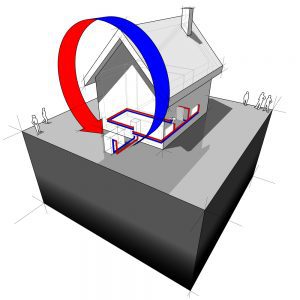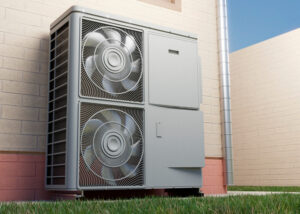Deciding whether to repair or replace your furnace can be challenging. A functioning furnace is vital to keeping your home warm and comfortable, especially during the cold months. Choosing the right option means balancing cost, efficiency, and long-term benefits for your home.
Assessing the Condition of Your Furnace
Before deciding between furnace repair and replacement, it’s important to assess the condition of your furnace. Start by checking the age of the unit. Furnaces typically last 15 to 20 years. If your unit is within this age range, it might be time to consider a replacement. However, older furnaces that have been well-maintained could still be viable with repairs.
Look for signs of wear and tear. Frequent breakdowns or strange noises can indicate a furnace is nearing the end of its lifespan. Our professionals can perform a thorough inspection to determine the exact condition. They check key components such as the heat exchanger, blower motor, and thermostat.
Energy bills also provide hints about your furnace’s condition. A sudden spike in heating costs suggests the furnace may be losing efficiency. Regular maintenance can mitigate this, but significant increases often mean the unit is working harder than it should, which might necessitate a replacement.
Factors Influencing the Decision to Repair
Several factors influence whether a furnace should be repaired or replaced. One major consideration is the cost of repairs. If the cost of fixing the furnace is less than half of the price of a new unit, repairing it might be the better option. However, if repairs are expensive and frequent, replacement becomes a more attractive solution.
The frequency of repairs is another important factor. A furnace that needs constant fixing is unreliable and expensive over time. If our technicians are visiting more often to fix recurring issues, it’s a sign that the furnace might need to be replaced.
The performance and efficiency of the furnace are also critical. A well-maintained furnace should heat your home evenly and efficiently. If you notice uneven heating, longer run times, or an inability to maintain comfortable temperatures, these issues may signal the need for a replacement. Our professionals can help you weigh the costs and benefits of repairing versus replacing based on these factors.
When Replacement Becomes Necessary
There are clear signs that indicate when furnace replacement becomes necessary. One key indicator is age. If your furnace is over 15-20 years old and frequently requires repairs, it might be more economical to invest in a new unit. Older furnaces tend to lose efficiency and reliability, making a replacement a more sustainable option.
Another factor is the cost of major repairs. When the cost of repairs becomes comparable to the price of a new furnace, replacement makes more sense. For example, issues with the heat exchanger or blower motor can be expensive to fix. In such cases, our technicians recommend considering a new, more efficient furnace.
Energy efficiency is also crucial. Newer models offer better energy savings and can cut down on utility bills. If your current furnace is outdated and inefficient, replacing it with a modern unit can save money in the long run. Our professionals can help determine if your current furnace’s performance justifies a replacement or if it can still operate effectively with needed repairs.
Benefits and Considerations of Each Option
Choosing between furnace repair and replacement involves weighing the benefits and considerations of each option. Repairing a furnace is often less expensive upfront and can be a good solution for newer units experiencing occasional issues. With repairs, you avoid the immediate high costs associated with purchasing and installing a new furnace.
However, continuous repairs can become costly over time. If your furnace frequently breaks down, the cumulative repair costs might outweigh the cost of a new furnace. Additionally, an older furnace, even when repaired, may not perform efficiently, leading to higher energy bills.
On the other hand, furnace replacement offers long-term benefits. A new furnace provides reliable heating and improved energy efficiency and often comes with a warranty. Newer models may also have advanced features that older units lack, enhancing your home’s overall comfort.
Consider the long-term costs and benefits when deciding. Our professionals can provide a thorough assessment and help you understand the potential savings and improvements a new furnace could bring. This informed decision ensures you choose the best option for your home’s heating needs.
Conclusion
Deciding between furnace repair and replacement is a significant decision that impacts your home’s comfort and your budget. By assessing your furnace’s condition, considering repair costs, and evaluating the benefits of a new unit, you can make an informed choice. Regular maintenance and timely repairs can prolong the life of your furnace, but there comes a time when replacement becomes the more practical and cost-effective option.
At Long Heating and Cooling, we are here to help you with this important decision. Our professionals offer expert advice and services to ensure your home stays warm and energy-efficient. Contact us today to schedule an assessment and learn more about our expert furnace replacement in Ozark, MO. Let us help you find the best solution for your heating needs.







